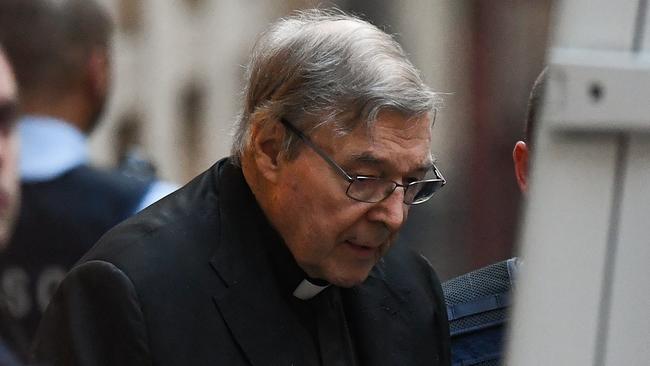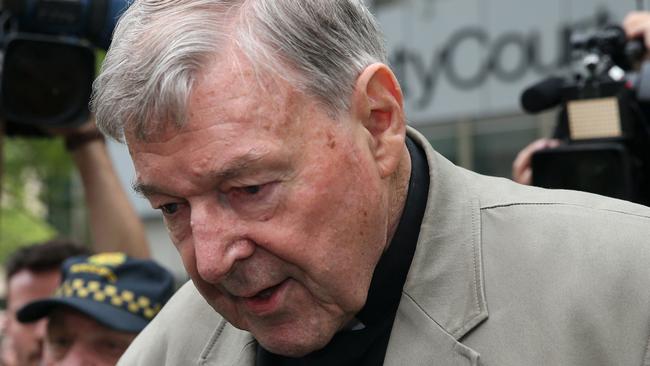Miranda Devine: George Pell’s conviction for child abuse challenges the meaning of justice
The conviction of Cardinal George Pell on child sex abuse crimes divided not just the community, but legal circles too. And when you look at the evidence, you can see why, writes Miranda Devine.
Rendezview
Don't miss out on the headlines from Rendezview. Followed categories will be added to My News.
After almost nine months in jail, Cardinal George Pell remains in solitary confinement in Melbourne waiting for the High Court to consider whether to hear his appeal on his historic child sex abuse conviction.
We should all hope that he wins because, otherwise, our criminal justice system is irreparably broken, and God knows which innocent man will be next.
Articulating this point of view brilliantly is Queensland barrister Anthony Smith in the October issue of Annals Australasia, a journal of Catholic culture edited by the eminent scholar and priest Dr Paul Stenhouse.
MORE FROM MIRANDA DEVINE: How Pell became the Vatican’s sacrificial lamb
Smith is not Catholic, but as a retired defence barrister he is “very troubled” by the charging and conviction of Pell.
“In the 1980s and early 90s … these allegations would have been given short shrift by competent, experienced Crown prosecutors,” he says.

“They lack any corroboration, are fanciful beyond rational belied and contain within them internal consistencies of an irreconcilable nature as to time, opportunity, practicality, place and circumstance.
“To contemplate that, approximately 20 years after the alleged offending, a complainant came forward following an advertisement by the police about St Patrick’s Cathedral defies every tenet of the maintenance of purity in the criminal justice system.
MORE FROM MIRANDA DEVINE: It’s a dangerous time to be a Christian
“That unprecedented process aligned the police with complainants, whereas they must have a degree of separation in order to afford fair trials.”
He says a political-social change in the late ‘80s transformed the way courts had dealt for hundreds of years with allegations of a sexual nature. It inverted the onus of proof so that now there is no assurance of a free trial for any man.
These trials became a “toss-up/who do we believe” scenario rather than “if there is any doubt whatsoever, that is, if having weighed the evidence, you as a jury retain a reasonable doubt, your absolute duty is to acquit”.
There has been no more vilified figure in Australia in the years leading up to his trial than Pell, the man who tried to clean up corruption at the Vatican for Pope Francis and paid the price.
MORE FROM MIRANDA DEVINE: A split decision on Pell is worst possible outcome for supporters
Smith says in his 30 years at the bar he has never seen a “clearer illustration of prejudgement”.
“An avalanche of adverse publicity, a Royal Commission, even a book judging his guilt led up to his day in court.
“Two juries have heard this case. The first couldn’t agree on a verdict. The second took five days to reach one. Three judges considered the evidence. Two said a guilty verdict was not unreasonable and one [Justice Mark Weinberg], said it was both unreasonable and inconsistent with the evidence.”

Weinberg is the only one of the three appeal judges with criminal law experience.
Pell’s grounds for appeal to the High Court argue that the other two appeal judges reversed the onus of proof which require the prosecution to prove Pell guilty beyond reasonable doubt because of a “favourable impression” of the sincerity of the lone accuser.
But, of course, it is possible both for the accuser to be telling the truth as he remembers it and for Pell to be innocent.
Smith says the Pell case is “a blight on the whole criminal justice system … The precedent set is too terrible to contemplate … Who will be next? No one is immune from suffering under this kangaroo process”.
Not you, dear reader, nor your sons and brothers. Whatever you think of Pell, his conviction should alarm you.
